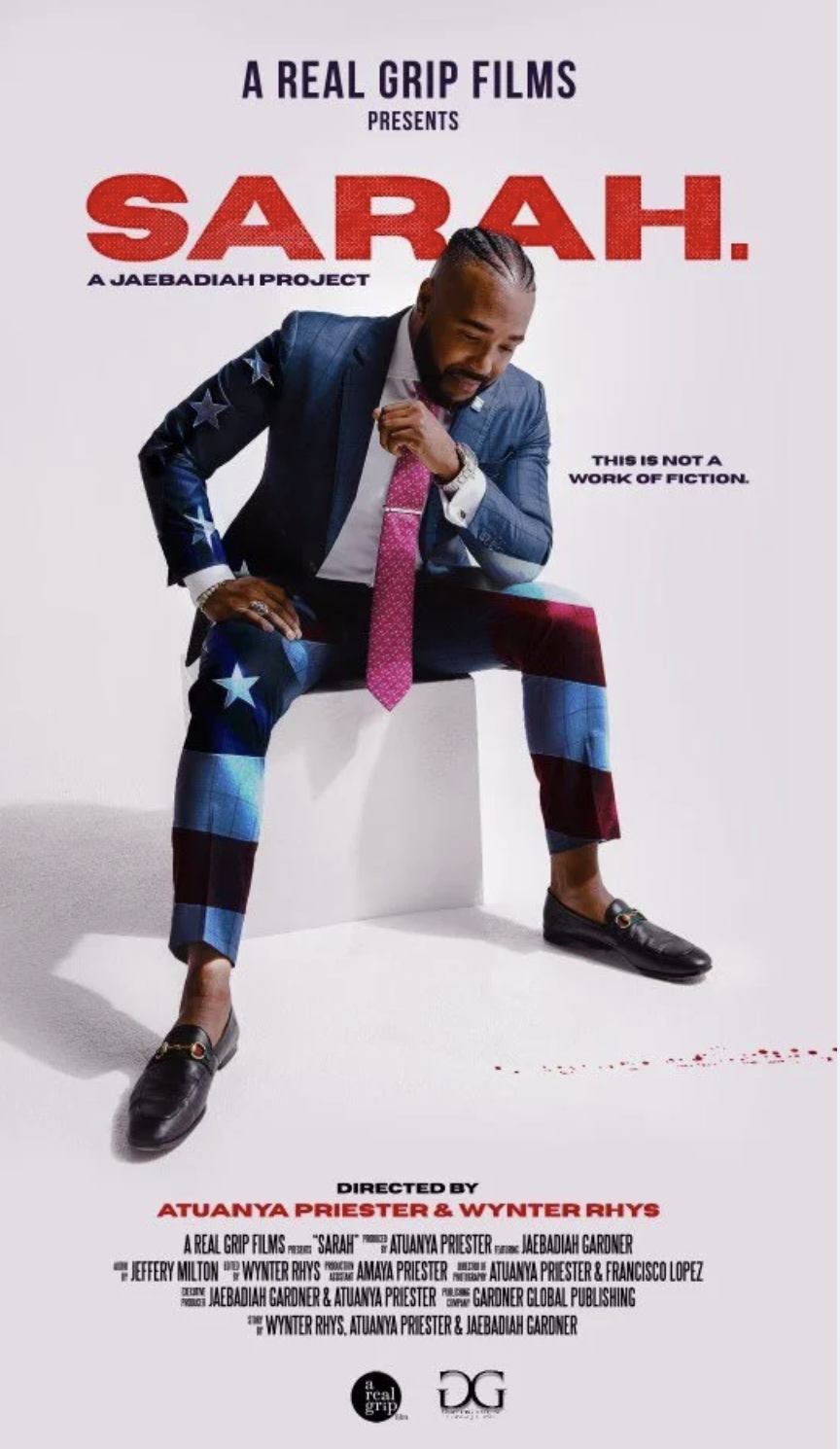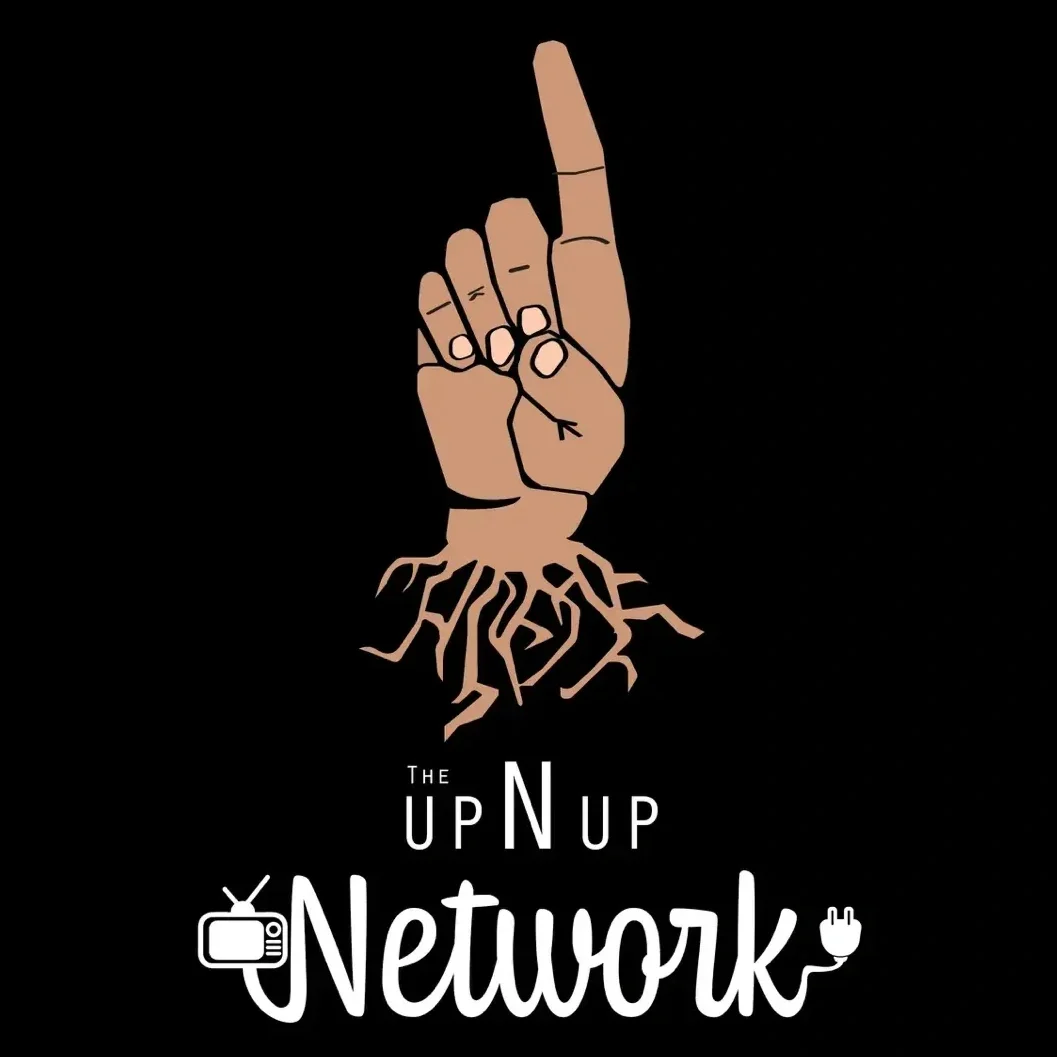On the Up & Up: Jaebadiah Gardner Talks Resilience, Wealth & Respecting the Craft
Setting the Stage
When you get invited onto The Up & Up Podcast, you already know it’s not going to be surface-level. Hosts Robel Andmicael and Ermias “DJ Erm” Haile have built a platform that goes deep spotlighting visionaries, hustlers, and culture builders who are pushing things forward.
In this episode, Our CEO Jaebdiah Gardner sat down with them to talk about setbacks, resilience, and what it really means to build community wealth. And trust me, we kept it all the way real.
Jaebadiah Gardner on the set of The Up & Up Podcast with Robel Andmicael and Ermias “DJ Erm” Haile
“The only thing that’s impossible is the thing you believe you can’t do.” -Muhammad Ali
“Sounds like something I’d say,” Jaebadiah laughed. “Believe in yourself.”
Asked what season he’s in, Jaebadiah Gardner didn’t hesitate: “Celestial. I’m here — grateful. The only question now is, how much can I give back?” That balance — gratitude, grit, and service — frames his entire story.
Early Life: Southgate lessons, Spokane roots, grandparents’ discipline
Born in San Antonio, TX to a military dad, first years in Spokane, then raised in Southgate, Los Angeles, an environment that demanded quick growing up. Seeing what substance abuse did to family and community clarified his lane early.
The anchors were his Mexican grandparents: little league every season to keep him off the streets, and a non-negotiable rule — work first, play later.
“I couldn’t leave the table or answer the phone until my homework was done. To this day, I don’t go out if the work’s not finished.”
That training became a mindset: setbacks aren’t full stops; they’re commas, a pause to re-center and push again.
Identity: “In LA, I thought I was Mexican. In Seattle, I learned what it meant to have Black skin.”
Growing up in Southgate (where 99% of classmates were Latino), he ate Mexican food, spoke Spanish, and moved as part of that community. Then Seattle flipped the mirror.
“I didn’t understand my racial identity until I got to Seattle. That’s when I learned what it meant to be treated as Black.”
It’s an experience many others share, realizing that the world may define you differently than the life that raised you. Eventually, Jaebadiah embraced authenticity: both Black and Mexican, no performance for either.
Black Seahawks Beanie: Raiders x Seahawks fans IYKYK
Mentorship & UW: Seeds of leadership (and a permanent monument)
At the University of Washington, post-I-200 (when affirmative action tools were eliminated), student mentors built an outreach program that handed him the real syllabus: bell hooks, James Baldwin, Frederick Douglass. The lesson was clear - education is a weapon, identity is strength, and leadership creates space.
Then he created space literally: lobbying UW for $150,000 to commission a permanent Kane Hall art collection by artists of color and building a monument outside Mary Gates Hall — a deliberate, unflinching slave block to force memory of Black American contributions into the landscape.
“They told us no for a year. We kept pushing. That was my first course in getting things done inside institutions.”
Founding GardnerGlobal: Wrote the plan, took the hits, kept the vision
First job: Turner Construction, building in downtown Seattle. Hard hat. Button-down. One of the only Black men on site not in a trades role. He soaked up the craft — and the disrespect — and made a vow about the company culture he’d build one day.
He also kept asking the question beyond the job site: Who’s the client with $150M? Answer: the developer. That curiosity turned into research, and research became a business plan.
“People laughed when I launched a development company in 2009. I thought we were supposed to buy low, sell high.”
He chose law school as a strategic power move - contracts, corporate, negotiations and literally built GardnerGlobal’s corporate engine from downloaded templates and classwork. That sweat equity saved the ~$25K legal bill most founders face just to stand up an entity the right way.
Respecting the craft (and yourself): “I’m a CEO with braids.”
Real estate development is still dominated by older white men. Add the “village” effect — people prefer to partner inside their own circles — and insert a Black CEO with braids who refuses to cut his hair to look “more serious.”
“If you’re stuck on my hair, you’ll stay stuck until I crack a deal. I’m not losing my identity to make you comfortable.”
So he built the relationship village himself. Alignment over transactions. Cool humans with principles, long before the term sheet. If the ship ever takes on water, he wants people on board who help plug the holes, not point at them.
That approach landed real alignment including Amazon’s $4.5M investment not through hype, but through months of no → maybe → no → maybe → yes and a refusal to abandon the mission: building Black wealth.
What a developer actually does (and why the title matters)
We define it as risk, responsibility, and resilience.
AOY: All on you
Risk tolerance: your capital, other people’s capital, and the signed guarantee with your name on it.
Due diligence: from soil contamination to entitlements — a thousand details that can crack a deal.
Accountability: if it falls apart, it falls On You.
“Lots of folks say ‘I’m a developer.’ Have you personally guaranteed the $6M loan? Are you the last one standing when it counts? Respect the craft.”
Wealth, defined: Four pillars beyond money
He frames wealth as relational, intellectual, asset-based, and generational.
Relational: the circle you invest in and who invests in you.
Intellectual: mastery of your craft — so no one can “yes, but” you out of the room.
Asset-based: owning productive things, not just flexing expensive ones.
Generational: can it maintain for 200 years?
“Real wealth is long-term maintenance. You can get it today, can your family keep it in seven generations?”
Culture you can’t manufacture“We Are culture. You cannot recreate us. You can try and we can all see when it’s fake.”
That lens guides his projects. No tokenism, no set dressing. Development that’s of community, not just in community.
“Sarah”: film, building, and homage
The short film Sarah is ultra-personal: family footage, grief, faith, the pieces he never posts. It culminates in the story of acquiring a Central District church site and naming the project for his grandmother, Sarah Queen Gardner a Black entrepreneur who opened salons in Spokane and is honored in Black Pioneers of Spokane.
“She was in church Monday to Monday. I’m buying a church. Her service at Calvary, I’m developing Mount Calvary. It lined up. This building honors Black women in business and the Black church, from who gets the retail to what stories the art tells.”
One word that keeps him “on the Up & Up”
Family. The same force that steadied him in Spokane, fed him in Southgate, and grounds him in Seattle. Family is the throughline — and the why behind the work.
Game for the next wave
Start before you feel ready: Readiness is built through action.
Mentorship matters: Stand on shoulders and then become shoulders.
Mindset over motivation: Discipline keeps you in the ring.
Don’t rush the process: Steward small wins so you’re ready for big ones.
Respect the craft: Titles come after the work.
“If the ship sinks, I want to be with people I actually rock with — the ones who help plug holes, not point fingers.”
About the Hosts: The Up & Up Podcast
Robel Andmicael and Ermias “DJ Erm” Haile have been cultivating culture and conversation on The Up & Up Podcast for over six years. With more than 115 episodes, the show has become a trusted platform for amplifying underrepresented voices, spotlighting “dimmed flames, unsung hustlers, and extraordinary individuals” whose stories deserve to be heard. Their mission is simple but powerful: preserve culture, build community, and provide game for the next generation.










